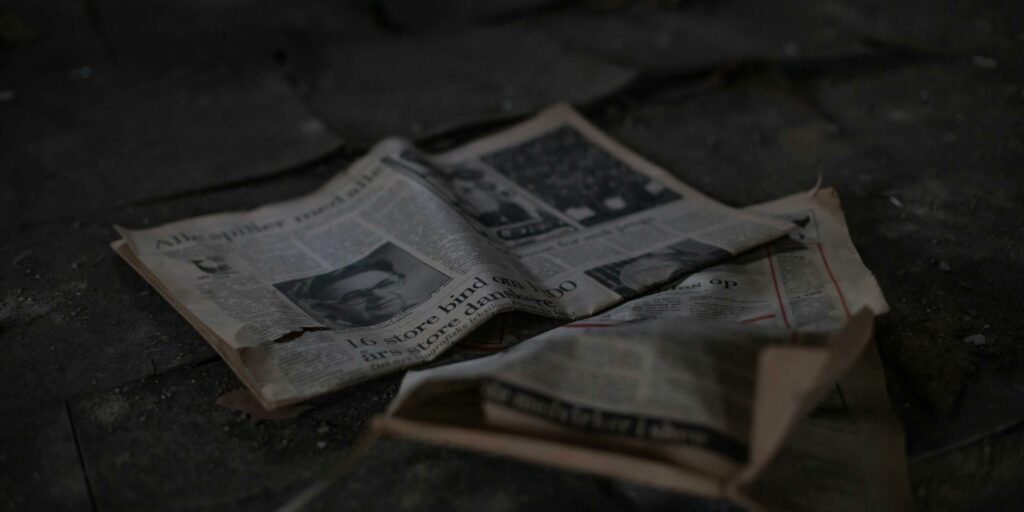It’s a growing trend in Latin America: politicians are increasingly stigmatizing the press and turning citizens against them. Journalists, in turn, are self-censoring out of fear of reprisal by government authorities.
Journalist Óscar Portillo experienced this firsthand while reporting in El Salvador for El Diario de Hoy. He witnessed the administration of President Nayib Bukele intimidating his colleagues and attempting to bar them from press conferences.
Once, he unintentionally found himself in an incident that foreshadowed the relationship between his country’s government and the media. “On one occasion, when Bukele was still holding press conferences, I was waiting in the press room of the Presidential House. A woman from the protocol office pulled my press card, quite forcefully, and asked me where I was from,” Portillo recalled. “I told her I worked for El Diario de Hoy. Another colleague questioned her about how she pulled my card. She was checking who was from El Faro and Revista Factum so she wouldn’t let them in.”
To avoid scrutiny or being barred from press conferences, Portillo noted that reporters have resorted to self-censorship. Portillo later left his career as a journalist due to poor working conditions and the growing harassment of reporters.
El Salvador’s deteriorating press freedom reflects trends in a region that has experienced the steepest decline in the Reporters Without Borders (RSF)’s Press Freedom Index. Of the 180 countries ranked, El Salvador now stands at 133, having dropped 18 spots since the previous report.
The Index gives scores from 0 to 100 to all countries based on five indicators. Countries scoring between 85 and 100 are in a “good situation” for press freedom, according to the report, while those between 55 and 70 points are classified as “problematic.” El Salvador is in the next to lowest category, scoring between 40 and 55 points – a “difficult situation.”
“The media are among the victims of El Salvador’s widespread violence. Since taking office in June 2019, President Nayib Bukele has attacked and threatened journalists critical of his government. Outspoken media outlets are harassed and journalists covering security issues and gangs are criminalized. The use of trolls reinforces the government’s narrative, and state-held information has been kept confidential since the pandemic,” the report reads.
A “difficult” region
The Salvadoran case is emblematic of Central America, which has been plagued by violence and limited access to public information. Further down the rankings are Guatemala, Honduras and Nicaragua, with the latter two countries experiencing particularly severe press freedom violations.
Even Costa Rica, long considered an oasis of press freedom in the region, has experienced major setbacks over the past three years. In 2021, the country ranked fifth in the world, behind only the Scandinavian countries. However, tensions between the new government, which took office in 2022, and the media have caused Costa Rica to fall to 26th place today.
“The state does not usually interfere in the work of the press. Nonetheless, in 2022, the government subjected some media outlets and journalists to verbal attacks, and some state entities refused to provide media outlets with public interest information,” the report states. It also notes that “despite the government’s attempts to vilify critical media, journalists don’t face threats to their physical safety or imprisonment, nor are they monitored.”
Highs and lows in South America
Changes in leadership across South America have also been reflected in jumps and falls in the press freedom rankings. Argentina, for example, fell 10 points in just eight months after the inauguration of President Javier Milei, moving from a “rather good” to a “problematic” situation.
Milei’s aggressive stance towards the media, particularly public outlets, raised alarms following his election victory. “It is regrettable that President Javier Milei can, from one day to the other, announce the demise of a news agency that has been active in the country for nearly eight decades. The dismantling of public media presents a real threat to pluralism in Argentina. The closure of [Argentine state news agency] Télam is, for Reporters Without Borders, a severe “blow to journalism and the right to information,” Artur Romeu, director of RSF’s Latin America office, said at the time.
Other countries, such as Chile, Colombia, and Brazil, have slightly improved in their scores, but continue to suffer from press freedom issues.
“The new government led by President Luiz Inacio Lula da Silva has restored normal relations between the media and state agencies after Jair Bolsonaro’s term as president, which was marked by constant hostility towards the media,” reads the RSF report on Brazil. “But structural violence against journalists, highly concentrated media ownership, and the effects of disinformation still pose major challenges for press freedom.”
The complete Index is available on the Reporters Without Borders website.
Image by Mads Thomsen on Pexels.
This article was originally published on IJNet Spanish and translated by Ana Prieto.
Source link : http://www.bing.com/news/apiclick.aspx?ref=FexRss&aid=&tid=66f2c95deb274ebd9f2435d67225cd74&url=https%3A%2F%2Fijnet.org%2Fen%2Fstory%2Fjournalists-latin-america-are-self-censoring-amid-press-freedom-backsliding&c=12649792576819335442&mkt=en-us
Author :
Publish date : 2024-09-24 03:14:00
Copyright for syndicated content belongs to the linked Source.
